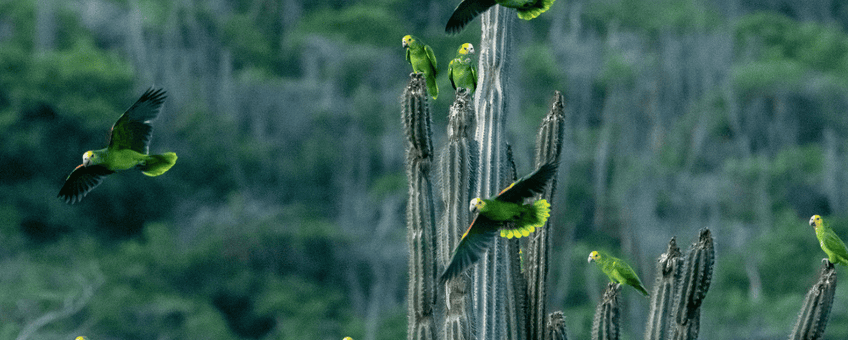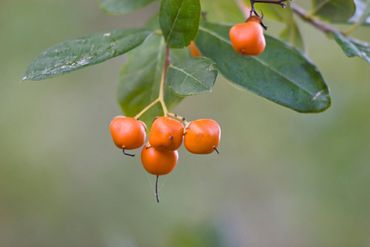
Fontein’s revival: freshwater oasis preserved on Bonaire
Dutch Caribbean Nature Alliance (DCNA)Historical importance
The name 'Fontein' pays homage to the perpetual freshwater source that originates in a reservoir beneath the north-eastern area of Bonaire. This freshwater source has been historically crucial for the island and its inhabitants, dating back to when the indigenous Caquetio people occupied the region. This is evident from the petroglyphs found on the estate.
The plantation, a part of Bonaire’s plantation complex, holds intrinsic cultural-historical value. From Spanish rule in 1499 to modern day, Fontein has been a witness to changing economic landscapes on the island. Despite facing challenges, diligent efforts have been made to maintain the plantation’s patterns and interactions between nature and culture remain visible, contributing to Bonaire’s identity.
Natural value
 The area of Fontein contains three freshwater reservoirs, as well as scrubland and introduced fruit trees. Since freshwater sources on the island are sparse, this area has been identified as an important bird and biodiversity area by BirdLife International. This area supports various populations of threatened and restricted range birds, such as the yellow-shouldered Amazon parrot (lora). Funding to purchase Fontein was made possible through a Nature and Environmental Policy Plan (NEPP) related project by the Ministry of Agriculture, Nature and Food Quality and Public Entity Bonaire. The goal of this project is to recreate this freshwater paradise for all of the islands’ residents (including humans) to enjoy.
The area of Fontein contains three freshwater reservoirs, as well as scrubland and introduced fruit trees. Since freshwater sources on the island are sparse, this area has been identified as an important bird and biodiversity area by BirdLife International. This area supports various populations of threatened and restricted range birds, such as the yellow-shouldered Amazon parrot (lora). Funding to purchase Fontein was made possible through a Nature and Environmental Policy Plan (NEPP) related project by the Ministry of Agriculture, Nature and Food Quality and Public Entity Bonaire. The goal of this project is to recreate this freshwater paradise for all of the islands’ residents (including humans) to enjoy.
Heritage
The government’s acquisition marks a critical step in preserving Bonaire’s heritage. Fontein’s complex history, from indigenous habitation to colonial struggles and post-slavery challenges, reflects the broader Caribbean narrative. The plantation’s value lies in tangible remains—prehistoric paintings, Dutch archaeological remnants, and landscape structures—all witnesses to centuries of habitation.
Looking forwards
The government’s investment in Fontein reaffirms its commitment to valuing and preserving Bonaire’s heritage. The acquisition ensures that this historic plantation remains a living testament to the island’s past, providing a unique space for reflection, education and community engagement.
DCNA
The Dutch Caribbean Nature Alliance (DCNA) supports (science) communication and outreach in the Dutch Caribbean region by making nature related scientific information more widely available through amongst others the Dutch Caribbean Biodiversity Database, DCNA’s news platform BioNews and through the press. This article contains the results from several (scientific) projects but the projects themselves are not DCNA projects. No rights can be derived from the content. DCNA is not liable for the content and the in(direct) impacts resulting from publishing this article.
Text: Dutch Caribbean Nature Alliance (DCNA)
Images: Hans Smulders (leadphoto: yellow-shouldered Amazon parrots); Marjolijn Lopes Cardozo
